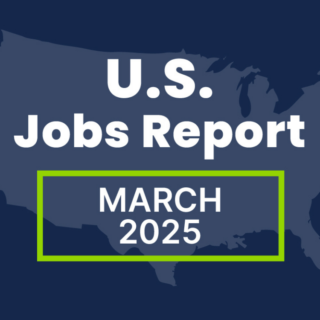As the mobility of the global workforce increases, more employers are looking for the best talent from around the world. Multiple factors contribute to this increased mobility, and employers armed with the knowledge and expertise needed to navigate global recruitment will hire and retain the best workers in the competitive talent landscape.
One contributing factor is the growing economic prosperity in many areas around the world. The U.S. is experiencing record low unemployment rates, and job growth in Australia has maintained a strong pace. In countries with low unemployment, many employers are looking outside their borders for the best talent. Additionally, workers in countries with high unemployment rates are increasingly willing to relocate for challenging and fulfilling work.
Technology is making the process easier. Video interviewing makes it simple to interview candidates without incurring large travel bills, and virtual reality technology could give candidates a realistic look at your office without an international flight. A variety of solutions for virtual work could mean that the perfect candidate won’t even need to travel to fulfill a job’s requirements.
In this article, we’ll cover the value of sourcing globally and some of the common compliance challenges including immigration, background checks and data privacy and labor laws. Then, we’ll examine some significant cultural issues, including writing job titles and job descriptions, social media, communication styles and office culture. Finally, we’ll cover how to handle the office politics that emerge when starting a global sourcing program and how an RPO partner can help.
The Value of Sourcing Globally
A diverse global workforce can improve your employer brand. As the world becomes more globalized, candidates look for employers who provide the opportunity to work internationally, and the opportunity to work with people from around the world. Diverse workforces also increase productivity and employee engagement.
Through global sourcing, you also expand your talent pool and increase your potential of finding the right candidate with the skills to meet your needs. As employers look to hire candidates with the skills of the future, expanding your search across the globe can keep you ahead of the competition. In industries with large skills gaps like healthcare and engineering, the ability to source globally is necessary to remain competitive.
If you are planning to expand globally, global sourcing can also help support those plans; whether you’re looking to open an office in a new country or hiring a sales team that can build inroads for your company, a global workforce is valuable for international expansions.
Employers can also see other benefits including:
- Increased ability to source candidates with the skills of the future
- Increased internal culture and a sense of community
- Greater cultural literacy in the workforce
- Increased creativity
- Diverse language skills
EVERYTHING YOU NEED TO KNOW ABOUT GLOBAL RECRUITMENT PROCESS OUTSOURCING
Buyer’s Guide to Global RPO
Managing Compliance Challenges
Immigration
Starting a global sourcing program does come with challenges, the most obvious of which is immigration. If you are hiring foreign employees to work domestically, you need to abide by the immigration laws in your country, which can be complicated by shifting political climates. In general, the immigration process can add cost to hiring foreign workers. However, you may find that foreign workers are more open to relocation that you expect.
Background Checks and Data Privacy
Throughout the hiring process, you’ll also have to contend with varying background check and data privacy laws. The EU General Data Privacy Regulation, commonly known as the GDPR, protects the data and privacy of all EU citizens and applies to organizations that collect the personal data of EU citizens, regardless of where those organizations are located. If you are considering candidates located within the EU, your hiring process must be compliant with the GDPR.
Additionally, countries around the world have different laws that regulate how you can contact candidates through email. The requirements for CAN-SPAM in the U.S., CASL in Canada and the SPAM Act in Australia all have different requirements and different penalties. Employers should ensure they are compliant with these laws before contacting candidates in other countries.
Labor Laws
If employers are hiring workers in other countries as part of an effort to open a new office or enter into a new market, they should also be aware of the differences in labor laws that apply. For instance, in Australia, employees are entitled to long service leave, or a period of extended paid leave from work after a long period of working for the same employer. The exact requirements vary based on jurisdiction, but are in general, six to 13 weeks of leave for every seven to 10 years worked.
Family leave can also vary from country to country. In the UK for example, women on maternity leave are entitled to 90 percent of pay for the first six weeks of their leave and a flat rate for a further 33 weeks. Men are also entitled to paternity leave for one or two weeks at a flat rate. Though the length of time and the amount of pay may vary, most countries outside of the U.S. have some requirements for maternity or parental leave.
Some countries have laws that dictate how and when employees must be paid. One of the more unique cases is the thirteenth salary, which is legally required in some countries, including Brazil. Under the law, employees who work for an organization for a full calendar year are entitled to an additional one-month salary, usually paid in two installments in November and December. Thirteenth salary is also a common practice in some European countries, but it is legally required in multiple South American countries, including Argentina and Uruguay.
Differences in Office Cultures
In addition to compliance challenges, employers should also be prepared to manage the cultural differences that exist in recruiting, hiring and work cultures around the globe. While a cultural mistake isn’t likely to result in a fine or other legal consequence, it can cause other problems. A lack of cultural literacy can lead to anything from communication confusion during the hiring process to a negative impact on your employer brand that will make it more difficult to recruit top talent.
Writing Job Titles and Job Descriptions
As you start the hiring process, you first want to make sure you’re using job titles and writing job descriptions that will appeal to global candidates. The wrong job title could mean that few qualified candidates even find your job posting. For example, the title “engineer” can refer to a variety of skills and a large range of experience depending on the country and industry where you are hiring. Other common titles like “secretary” or “representative” can indicate high paying and powerful positions in one country or entry-level positions in another.
Once you establish the right job title, it’s also important to write a job description that will attract your desired candidates. In some countries, candidates view job descriptions as a near exact outline of the work they would do in that position. In other countries, candidates may expect more flexibility depending on their skills. Additionally, some phrases may discourage global applicants. For instance, “must have a college degree” could prevent some global candidates from applying. The meaning of “college,” “university” and even “high school” can vary from country to country. You should include equivalent experience and educational requirements for each country you’re recruiting candidates in.
Social Media
It’s also important to understand the role social media plays in a candidate’s country. In the U.S., candidates are used to employers searching and reviewing posts on public social media pages. Candidates in other countries may not have this expectation. Additionally, some countries will have different social media sites instead of or in addition to the common Facebook, LinkedIn and Twitter. For example, in China, western social media platforms are banned, and Weibo, WeChat and Youku are popular. Additionally, social media sites can have varied relevance in a job search from country to country.
Communication Styles
It’s also important to understand different communication styles that are common around the world and how those influence interviews, negotiations and even contracts or lack thereof. The Harvard Business Review gives several examples of varying cultural business norms listed below:
- In Russia, disagreement is expressed strongly and openly, and a negotiation that starts with a strong disagreement can be a positive sign.
- In Mexico, it is uncommon to clearly voice strong disagreement, but emotional expression is a sign of honesty.
- In countries like Denmark, Germany and the Netherlands, open disagreement is good, but it should be expressed without emotion.
- In China, trust is built through relationships rather than a business perspective.
- In Indonesia, it is rude to look someone in the eyes and say no to a request.
- In Japan, it is common to iron out potential challenges informally before a meeting, so there is not debate during a formal meeting.
- In America and Northern Europe, it is common to put everything in writing, from recapping a meeting to a full contract, but some African, Middle Eastern and Asian countries, the same process can be a sign of distrust or disrespect.
Office Culture
There are other cultural differences related to the workday that you may have to address. In the U.S., overtime is common, and full-time workers are often expected to work eight-hour days, five days each week. In other countries, like Brazil, the work week is capped at 40 or 44 hours, depending on how many days a week the person works. French workers have a “right to disconnect” after hours, and in Sweden, fika, or a mid-morning break for coffee and snacks, is common. While some of these differences are legal issues, others will shape candidate expectations about the work environment. Employers need to understand and prepare for how these different approaches to the workday will play out at their organizations.
Understanding Office Politics
As an organization begins a global sourcing process, it should not overlook the importance of internal communications, office politics and training. Change can be difficult, and it is best to be proactive. Whether a company is opening a new office in another country, recruiting foreign workers to work virtually or sponsoring visas for candidates who wish to immigrate, employers should prepare for how all employees handle the change.
Employers should train all employees, regardless of location about the different cultural workplace differences that could impact workers. It’s important that the training is for all workers so that some employees don’t feel singled out. The process should teach new workers and existing employees about each other, how the business operates and any changes that they can expect.
Some expressions and phrases have different meanings in the same language, depending on where it is spoken. It is important to those communications across borders and cultures to be aware of these differences. For example, in the United States, to “table” usually means to postpone or suspend consideration of a pending motion. In the rest of the English-speaking world, such as in the United Kingdom and Canada, to “table” means to begin consideration (or reconsideration) of a proposal.
Employers should also be prepared for fears from current employees about replacement or outsourcing. It can be a delicate conversation, but it is an important step to help retain employees. Organizations should work with their leadership and internal communications teams to frame the conversations about changes in the workplace. HR should also review conflict management best practices to ensure that any issues that develop between employees can be mediated before they come to a head.
Finding a Partner
As employers look to start global sourcing programs, it is important to look for an RPO partner who has deep experience with international programs and who understands the part of the world where you are looking to expand or source candidates. Your partner should help you navigate the compliance and cultural issues that accompany any global sourcing program. While some local labor laws deal with issues that happen after the hiring process, remember that they can have implications during the hiring process too. An RPO provider can help prepare you for many of the challenges before you post a job or extend an offer. Additionally, a partner with years of experience can help you anticipate any communication and training issues so that you can tackle the issues head-on.



